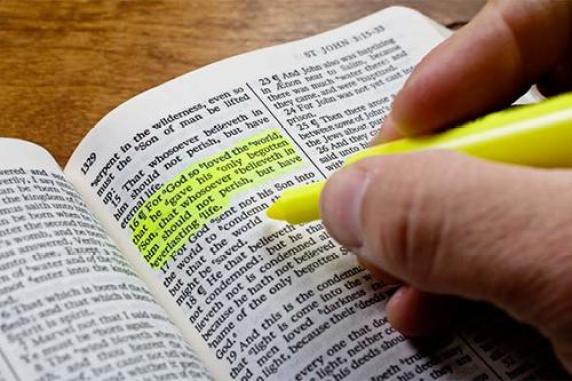Although by Bible times people had moved out of the original cave dwellings that were abundant in the ancient Middle East, there were always people who lived in caves. Lot lived in a cave after his escape from Sodom (Gen 19:30), and the Edomites made and enlarged caves in the rock face at Petra for living and for public affairs.
Continue reading MANNERS AND CUSTOMS (CAVE-DWELLERS)Tag Archives: Philistines
MANNERS AND CUSTOMS OF THE BIBLE (WORKERS WITH METAL)
The metalsmith has a very old pedigree. Cain was a smith, and it was one of his descendants, Tubal-Cain, who was described as “the forger of instruments of bronze and iron” (Genesis 4:17,22). Cain was the father of the Midianite tribe of Kenites who seem to have been involved in many aspects of Israel’s history (see, for example Genesis 15:19; 1 Samuel 15:6). They appear to have exploited the copper of the Sinai with the Egyptians. Artifacts of Kenite metalworking have yielded much of the archaeological information we know concerning ancient metal-working.
Continue reading MANNERS AND CUSTOMS OF THE BIBLE (WORKERS WITH METAL)DEFINITION OF THE DAY (RIDDLE)
Enigmatic or puzzling statement, often based on the clever use of the ambiguities of language. The classic biblical example of a riddle is that posed by Samson to the Philistines. This riddle is in poetic form (judg 14:12-12), and the question, “What is it?” is implied. The Philistines’ reply is in the form of another riddle (v 18a) whose original answer was probably “love.” Samson’s retort may reflect yet another commonly known, and rather risque’ riddle (v 18b).
Continue reading DEFINITION OF THE DAY (RIDDLE)A LITTLE KNOWN FACT ABOUT (SHILOH)
Jerusalem was not Israel’s first capital. Shiloh was-for at least a century.
A high plains village nearly half a mile above sea level and thirty miles north of Jerusalem, in Israel’s hill country, Shiloh was where Joshua and the Israelites pitched the tent of God, or the worship center called the tabernacle. This is where the Israelites came to offer sacrifices to God and to celebrate religious holidays.
Continue reading A LITTLE KNOWN FACT ABOUT (SHILOH)BIBLE CUSTOMS & CURIOSITIES (NO BLACK MAGIC)

The term divination, as used in this passage, refers to attempts to control evil spirits, to penetrate the mysteries of the universe, or to foretell the future by using magical acts, pronouncing superstitious incantations, or interpreting natural signs. Today we refer to such practices as “the occult.” “Black magic” was a prominent feature of pagan religious systems in Bible times. But God prohibited the Israelites from participating in these practices. Seven different types of divination are mentioned in this passage.
Continue reading BIBLE CUSTOMS & CURIOSITIES (NO BLACK MAGIC)SCRIPTURE OF THE DAY (1 CHRONICLES 10: 1-6: SAUL TAKES HIS LIFE)

Now the Philistines fought against Israel; and the men of Israel fled from before the Philistines, and fell down slain in mount Gilboa.
2 And the Philistines followed hard after Saul, and after his sons; and the Philistines slew Jonathan, and Abinadab, and Malchishua, the sons of Saul.
3 And the battle went sore against Saul, and the archers hit him, and he was wounded of the archers.
Continue reading SCRIPTURE OF THE DAY (1 CHRONICLES 10: 1-6: SAUL TAKES HIS LIFE)SIGNS AND SYMBOLS OF THE BIBLE (BULL/CALF)

Cattle were primarily a measure or symbol of wealth in biblical times. They were both familiar and significant, good characteristics for symbolic use. Among his livestock, the wealthy Job had a thousand oxen (Job 1:3). Cattle not only provided meat, milk, leather, and other by-products, they were the main animal workforce in ancient agricultural societies. Oxen (castrated bulls) pulled plows as well as wagons. Continue reading SIGNS AND SYMBOLS OF THE BIBLE (BULL/CALF)
DEFINTION OF THE DAY (GOUGING THE EYES)

Cruel and degrading punishment sometimes inflicted on conquered peoples in biblical times. The Philistines put out Samson’s eye’s (Judg 16:21). Nahash offered to make peace with the people of Gilead on the condition that he put out the right eye of every man in the city and thus bring disgrace upon all Israel (1 Sam 11:2). After executing King Zedekiah’s sons in his sight, the Babylonians put out his eyes (2 Kings 25:7). Scripture records such events as cruelty, not as examples to follow. Continue reading DEFINTION OF THE DAY (GOUGING THE EYES)
MEN OF THE BIBLE (SAMSON: A STRONG AND WEAK MAN)

Those who don’t learn from history are doomed to repeat it. Those words would have made a good motto for Israel during its period of the judges. The seemingly endless cycle in which the Israelites found themselves went like this: The people of Israel would rebel against God, so God would allow their enemies often the Philistines-to mistreat them. After serval decades of oppression, the Israelites would call out to God for help. Then God would send a judge-a military leader-to deliver them from their enemies. One of the last of these judges was Samson. Continue reading MEN OF THE BIBLE (SAMSON: A STRONG AND WEAK MAN)
IF THE ARK OF THE COVENANT WAS SO SPECIAL, WHY WERE THE PHILISTINES ALLOWED TO HAVE IT?

On its own, the ark was little more than an interesting piece of furniture. But the ark held the Ten Commandments and symbolized God’s presence. Any attempt to see power in the ark itself (as in the popular Indiana Jones films) is tantamount to idolatry. The people of Israel made this mistake frequently. They assumed that possession of such a powerful instrument as the ark gave them some control over God Himself, since God was obligated to guarantee the success of anyone (or any group of people) possessing it. Continue reading IF THE ARK OF THE COVENANT WAS SO SPECIAL, WHY WERE THE PHILISTINES ALLOWED TO HAVE IT?



